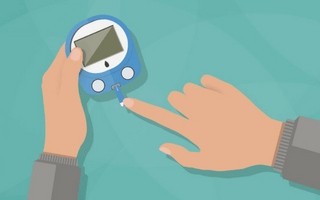
What is Ayurveda?
Ayurvedic medicine has been with us for centuries. Over 3,000 years ago this form of treatment found its origins in India, and remains, until date, the main care system in the country. It is known as one of the world’s oldest holistic (whole-body) healing systems. The Ayurvedic practice is based on the approach that health and wellness depend on a delicate balance between the mind, body, and spirit.
Ayurvedic medicine approaches health and disease in a completely different manner from traditional Western methods, preferring, instead of the usual chemical compounds developed by companies, to take a natural plan of treatment.
Today the government of India as well as many other global institutes support Ayurveda and continued research on the treatment it offers. While not as widely studied as Western medicines, millions of patients and practitioners across our planet swear by it.
Generally speaking, Ayurveda treats the patient through the use of special diets & herbal compounds, designed to promote health and a better sense of well-being.
Can Ayurveda Help Treat Type 2 Diabetes?
Over 420 million individuals around the world have type 2 diabetes. This condition is not only serious but a lifelong affliction.
Type 2 diabetes, also called adult-onset diabetes comes from the inability of the body to use insulin, resisting the insulin produced by its own pancreas. There are many common problems or symptoms related to the condition: frequent urination, fatigue, cuts and other skin injuries that are slow to heal, changes in vision, just to name a few.
Diet in India, as well as around the world, is known to play an important role in maintaining better health, and Ayurveda recommends the patient to limit foods that are high in carbohydrates and sugar, that whenever possible to eat whole grain foods and naturally stay away from fat. Smoking, alcohol and lack of sufficient sleep also contribute to a continuance and denigration of the condition. It’s recommended that over half the daily diet should consist of vegetables.
At the same time, too much protein can put an excessive strain on the kidneys. Although vegetables are highly recommended, certain foods should be approached with caution. Rice, potatoes, bleached flour, red meat and sweet fruits except for the juice of oranges or lemons.
Ayurvedic Diabetes treatment, made easy in the 21st century
To effectively manage the condition, Ayurveda recommends the use of specific herbal treatments. Supplements such as Bitter Melon (Karella), Syzygium Cumini (Jambubeej), Gymnema Sylvestre (Gudmaar), Tumeric (Haldi), Embelica Officinalis (Amla) and more.
Today, with globalization and technological progress, nutritional supplements that combine ancient Ayurvedic ingredients & modern-day R&D capabilities, like CuraLin by CuraLife, are easy to find, use and enjoy their health benefits.
While modern synthetic drugs are widely used in the West, diabetes is still often referred to as the Silent Killer. Recent evidence also points to the possibility that many of today’s modern medicines tend to create their own problem through increasing the patients’ insulin resistance.
While there may so far be no real cure for diabetes, Ayurvedic treatment is of value all people with diabetes and can provide an effective, sustainable and safe solution to the condition.
Want to try CuraLin? Click here



















